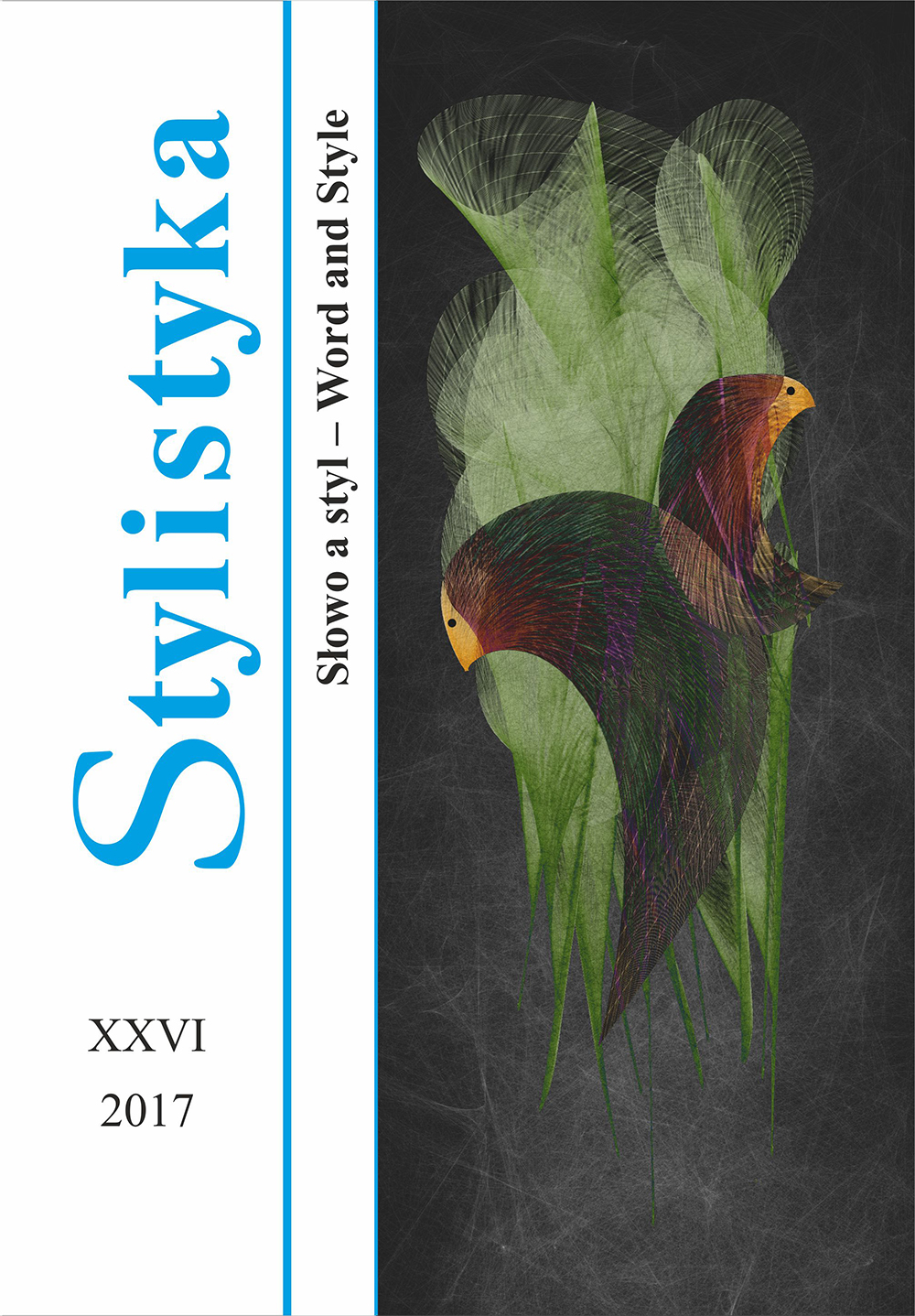LEXIKÁLNÍ PROSTŘEDKY A STYL NOVÉ ČESKÉ LITERATURY
Lexical devices and the style of the new Czech literature
Author(s): Petr MarešSubject(s): Czech Literature
Published by: Uniwersytet Opolski
Keywords: archaism; colloquialism; lexical devices; literary text; poetism; stylistic markers; vulgarism
Summary/Abstract: The paper deals with the complexity of stylistic markers of words and with the employment of these markers for aesthetic purposes and effects in several works of modern Czech literature. There is a distinctive tendency in the Czech prose to combine lexical devices with dissimilar, often antagonistic stylistic markers (formal and colloquial, archaic and new, polite and vulgar etc.). The main part of the paper includes short analyses of selected texts that operate with lexical devices in such a way. In 1920s, Vladislav Vanèura was a pioneer of this stylistic technique. In the last decades, novels and short stories by Ota Pavel, Jiøí Gruša or Petra Hùlová represent outstanding examples of achieving significant effects by contrasting words with antagonistic stylistic markers.
Journal: Stylistyka
- Issue Year: 2017
- Issue No: XXVI
- Page Range: 173-183
- Page Count: 11
- Language: Czech

